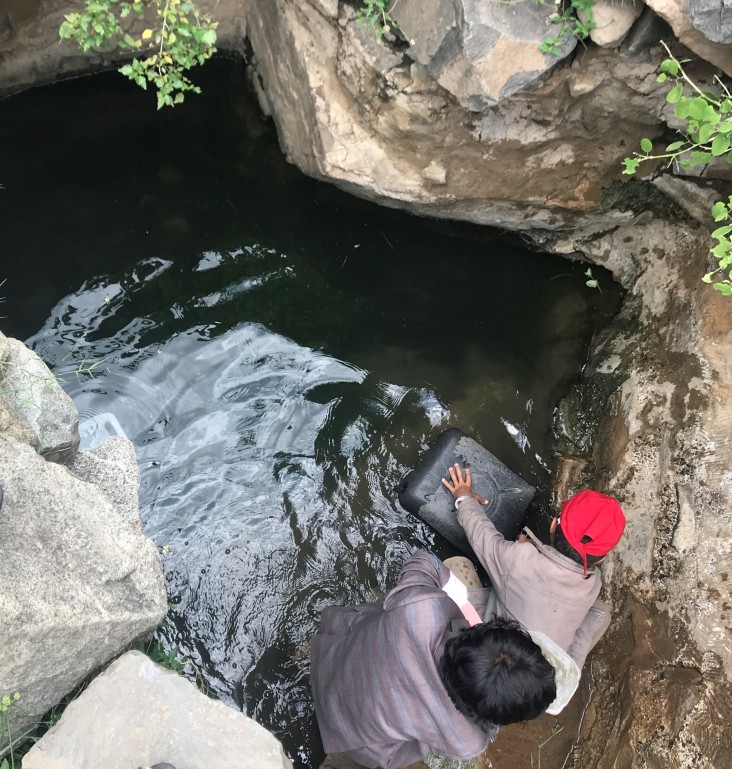Speeches Shim

Improved Water and Sanitation Services for Northern Yemen Village
After many years of conflict, millions of people do not have access to safe water, sanitation, and hygiene (WASH) services in Yemen. While getting water at home is a matter of turning on a tap for many people around the world, for the locals of Qa’a Rajab in Sana’a, northern Yemen, getting water used to mean a long ride on a donkey to the nearest spring.
“Locals couldn’t go on foot to the spring to fetch water due to the roughness of the roads,” says Fuad, a resident of Qa’a Rajab. “It is very hard to carry a water container all the way home in such conditions under the hot sun, so they resorted to using donkeys to help go back and forth.”
The donkeys would stand in the middle of the spring while people filled their containers, contaminating the water with their waste, according to Fuad.
Lack of toilet facilities meant locals had to relieve themselves in private. “Locals used to defecate in secluded spaces without using water to clean the area, which also contributes to the spread of cholera,” Fuad explains, noting that the village suffered from at least one cholera death.
Poor WASH services had additional consequences for the residents aside from immediate health risks. Having to relieve themselves in secluded public spaces increased women and girls’ exposure to harassment, abuse, and violence – particularly after nightfall.
Elderly people were not able to fetch water from the spring, so women and children assumed a greater burden. “Girls and boys didn’t go to school, or they missed classes because they were responsible for fetching water,” says Fuad. “The rides between the village and the spring took two hours every day.”
USAID partner CARE was the first humanitarian and development organization to reach the area of Qa’a Rajab to assess the water and hygiene needs and provide development assistance. With funding from USAID under the Addressing WASH Services in Yemen project, CARE built a protective barrier around the natural spring, two water tanks, a solar-powered water pump system, pumping lines and connection pipes, and two water distribution points much closer to the village. The average round-trip water collection time now ranges between 15 to 30 minutes. This new water scheme benefits more than 300 families. CARE also installed 30 toilets to improve hygiene facilities in the village.
“Water is life,” says Fuad. “The construction of the new water tank not only means people now have access to safe, clean water, but also it is a sign that after many years of suffering, the village is starting to be clean and healthy. Before, we used to fetch some water, but it was never enough. Now, we have enough water for our daily chores.”
Addressing WASH Services in Yemen is a three-year activity implemented by CARE that improves access to safe water and sanitation services for vulnerable populations in Yemen through rehabilitation of water supply systems and sewer networks, construction of public latrines, and promotion of hygiene awareness.

Comment
Make a general inquiry or suggest an improvement.